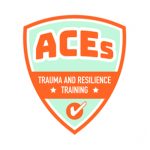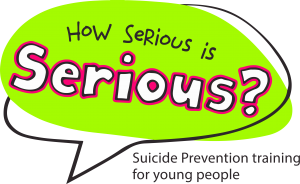Bite-size Training Opportunities
 Merseyside Youth Association’s mental health promotion team (RAISE Team), has developed a range of bite-size courses, adapted from courses they have previously delivered.
Merseyside Youth Association’s mental health promotion team (RAISE Team), has developed a range of bite-size courses, adapted from courses they have previously delivered.
These sessions cover a range of mental health issues which impact on children, young people and their families.
The sessions will last between 20-30 minutes and will be delivered via the video-calling tool, Zoom, to groups of people at various times of the day and evening. We are inviting parents as well as members of the children and young people’s workforce to take part in these sessions together.
The sessions are part of the Liverpool CAMHS Covid-19 response, supporting early intervention and resilience-building.
You can register for each course on the training pages
Adolescent Brain Development
The adolescent brain development bite-size course is aimed at anyone caring for, or looking after children and young people to give an insight into why teenagers may act the way they do.
The common question we have all asked our teenagers, “Why did you do that?!” Of course, we are often disappointed that they simply can’t provide a good response. The reason for this is because a teenager’s brain is still under construction. So, though teenagers may look and even talk like young adults, their brains are not always caught up. It is hoped that you will get a better understanding of how the adolescent brain works and the reason behind teenager behaviour.
The brain functions will be explored, the way this affects their current behaviour and how vital sleep is for adolescents during this time. Strategies on how we can help build a healthy brain in our teenagers will be shared along with useful tips and resources to help you and your adolescent.
Eating Disorders
During this difficult time, it may be a lot harder for young people who have eating disorders as they do not have their normal routine or daily distraction, everything could be planned around meal time with the family, and mealtimes for young people who have an eating disorder are difficult on a normal day. Being in isolation with no routine could be a trigger.
This bitesize session on eating disorders is aimed at anyone caring for, or looking after children and young people who want to understand more about the causes of eating disorders, signs and symptoms to look out for, the different types of eating disorders and the negative influence social media can have on a young person. We will be giving you an insight into the current resources that are available for you to use and tips if you are worried about a young person.
Self Harm
During this time, it may be a lot harder for young people who self-harm as their parents may be working from home and they may feel as though they have no alone time in their room to harm themselves.
As they do not have their normal routine or daily distraction, their worries and concerns may increase and being in isolation with no routine could be a trigger. This bite-size session on self-harm is aimed at anyone caring for, or looking after children and young people who want to understand more about a child’s self-harm. There will be a focus on why young people may self-harm, and an emphasis made on self-harm is a behaviour, not a mental health illness. Positive strategies will be explored for adults to use with children and young people along with helpful apps, tips and resources on how you can promote aspects of resilience from this.
Resilience
This bitesize session on resilience is aimed at parents, carers and staff who want to understand more about what are the key aspects of resilience, why it is important to support children and young people in building resilience and strategies on how to do this.
We will be giving you an insight into the current resources that are available for you to use and what MYA are doing to promote resilience during the lockdown.
ROAR

An adapted version of our original ROAR program which will be delivered in shorter sessions online to raise awareness of mental health, to explore the impact on mental distress on thoughts, feelings and behaviours; to help spot signs and symptoms in ourselves, children and young people, to understand what we mean by resilience and how it can impact on our mental well-being.
This is suitable for primary school staff only.
ACEs and Trauma-Informed Practice
 How can we be more trauma-informed?
How can we be more trauma-informed?
As we are preparing for our children to return back to school, it has been highlighted that vulnerable children will have been even more at risk whilst at home during the lockdown.
This bitesize training is to equip anyone caring for, or looking after children and young people with the knowledge on how to have the confidence to practice trauma-informed approaches in regards to Adverse Childhood Experiences (ACEs). ACEs are stressful or traumatic experiences that can have a huge impact on children and young people throughout their lives.
Merseyside Youth Association has developed a training course that will build upon schools’ understanding of resilience and person-centred approaches and reflect on how they currently foster a nurturing, environment for all children.
Social media and mental health
The social media bite-size course is aimed at anyone caring for or looking after children and young people to give an insight into the current trending social media apps used by children and young people. Delegates will learn the strategies on how to promote safety to children and young people when using these apps. The session will also focus on how technology and social media can be good for their mental health and how we can promote aspects of resilience from this.
Serious (about suicide)
 This bite-size session, ‘Suicide awareness in children and young people’, will explore some of the key issues such as risk factors, information from policy, latest research and support services available. Delegates will listen to the voices of parents who have tragically lost a child through suicide.
This bite-size session, ‘Suicide awareness in children and young people’, will explore some of the key issues such as risk factors, information from policy, latest research and support services available. Delegates will listen to the voices of parents who have tragically lost a child through suicide.
The session will look at confidence levels relating to asking the question, ‘Are you feeling suicidal?’ and understanding how to respond in this situation.
Managing a child’s worry
This bite-size session will look at what worry is, how it differs from anxiety and why as parents we need to support our children to worry and find effective ways to control worry.
The session introduces the concept of worry time along, the importance of learning your children about the anxiety response. and provide information on ways to communicate to your child about worry from the views of young people.
Understanding my stress response
This bite-size session will explore what stress is and how it feels physically and emotionally, the positive and negative effects of stress, along with dispelling myths about stress, managing our stress with the introduction of coping skills and some self-care strategies.
Embracing uncertainty
This bite-size session will look at what we mean by uncertainty and why we feel the need to control it. It will explore overthinking and the impact on our mood, look at how we can ‘be present’ and the benefits of being present for our well being.
The session will provide techniques to help you work on being more present and explore concepts such as mindfulness and grounding techniques as well as exploring how to make small changes to your routine to support your mental health and well being along with the benefits of reducing worry about the past and the future.
Attachment
This bite-size session will look at an introduction to attachment, what attachment is and how it may present in children and young people. It will explore the impact of poor attachment and the need to support and nurture positive attachment across all ages.


